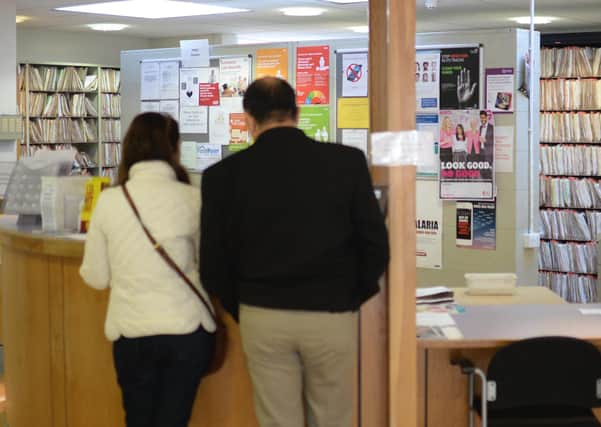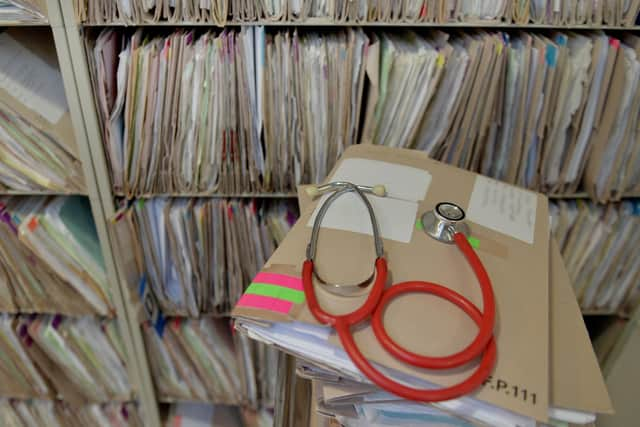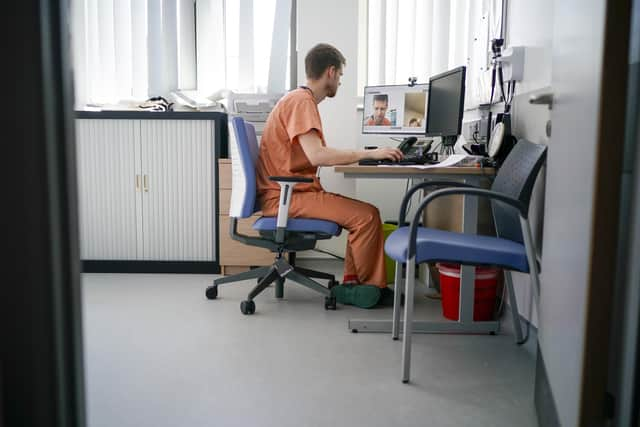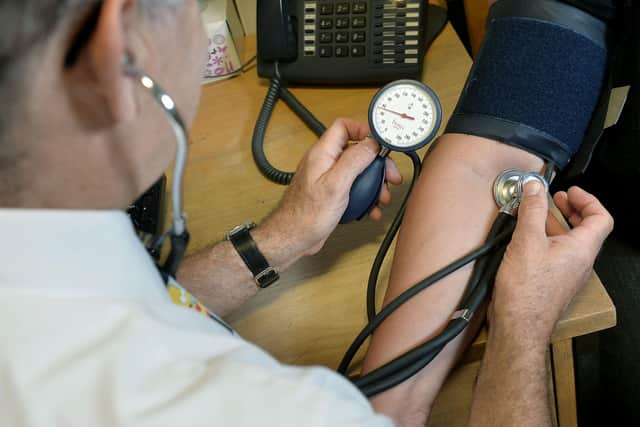Stop vilifying GPs over appointments; we’ve changed for the better – Mike Holmes


The publicity around this has been damaging, unbalanced and hurtful to the committed teams who work within GP practices.
Advertisement
Hide AdAdvertisement
Hide AdI realise that this is becoming a recurring message from me, but I hope you will forgive me if feel compelled to respond again.


Within my own practice, we have never closed our doors throughout the pandemic.
Our teams have worked weekends and bank holidays, run clinics in car parks, village halls and care homes.
Advertisement
Hide AdAdvertisement
Hide AdThey are now dealing with significant staff illness, but still delivering the service and actually providing more patient appointments than ever before.


I think the time has come for a little bit of honesty and balance.
Each and every working day over one million people are treated in General Practice.
Advertisement
Hide AdAdvertisement
Hide AdJust imagine if a fraction of those people had to be seen in hospital?


Worse still, what would happen if General Practice wasn’t there at all?
We may joke that it would be okay but – trust me – it wouldn’t.
We have faced more than a decade of rising workload and diminishing workforce, alongside a complete mismatch of funding.
Advertisement
Hide AdAdvertisement
Hide AdDespite seeing around 85 per cent of all NHS activity, General Practice receives only around 10 per cent of the NHS budget.
We also hugely underinvest in prevention and that is now being felt in the levels of disease we see across the UK.
The reality is that General Practice has been evolving for some time and this has accelerated during the pandemic.
The sheer volume of patient demand and shortage of clinicians means that we could never continue seeing all our patients face to face within an acceptable time frame.
Advertisement
Hide AdAdvertisement
Hide AdPut simply, if we saw all patients face to face, many patients would have to wait several months for an appointment.
We have to accept that General Practice will not be the same again and that is a good thing – it is evolving and adapting to the needs of our patients and the way people want to access it.
We have short memories – we weren’t happy with General Practice before the pandemic and were demanding change.
Successive governments have prioritised access over continuity of care – yet the profession is blamed for the fact people can’t see their ‘usual’ GP.
Advertisement
Hide AdAdvertisement
Hide AdOf course we all know a perfect health system is impossible to achieve…don’t we?
The reaction in the media suggests that many do not fully recognise the importance, the potential and the purpose of General Practice.
We do not just see minor illness – we assess, manage and co-ordinate care from cradle to grave, we see the full spectrum of physical, psychological and social issues.
For many, this is incredibly complex. We have a huge task and I see the impact of this on colleagues and patients every day.
Advertisement
Hide AdAdvertisement
Hide AdDon’t get me wrong, it is a privilege to be a GP and none of us went into the profession thinking it would be easy – of course it isn’t and it never will be.
The reality is, like all health and social care sectors, we are trying very hard and in many cases going beyond what would be deemed reasonable.
Some colleagues are choosing to leave along the way, but the majority are hugely resilient and driven by powerful values.
I am confident they will get us through the pandemic and into whatever comes next.
Advertisement
Hide AdAdvertisement
Hide AdEvery health and social care sector is under significant pressure and the clinicians that helped us through the pandemic, and for whom we clapped every week, are now exhausted, but they are still committing everything they have to getting us out the other end – which, by the way, is still a long way off.
As a society we can chose to believe and perpetuate the negative press, or we can acknowledge the reality and work together to get through the next set of challenges – I am so grateful that the health and social care system here in York is choosing to do the latter.
Professor Mike Holmes is Chair at Nimbuscare, GP at Haxby Group, and former Vice-Chair at the Royal College of General Practitioners (RCGP).
Support The Yorkshire Post and become a subscriber today. Your subscription will help us to continue to bring quality news to the people of Yorkshire. In return, you’ll see fewer ads on site, get free access to our app, receive exclusive members-only offers and access to all premium content and columns. Click here to subscribe.
Comment Guidelines
National World encourages reader discussion on our stories. User feedback, insights and back-and-forth exchanges add a rich layer of context to reporting. Please review our Community Guidelines before commenting.